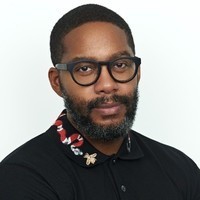Amanda Hess, a staff writer at Slate, has also written for Pacific Standard, GOOD, and ESPN the Magazine.
"I ended up not loving the fact that I was getting a bunch of calls from MSNBC and CNN, who mostly wanted to talk about people threatening to rape and kill me and only a tiny bit about the story I'd written. ... It was tiring, and it seemed dismissive of me as a person. It's a strange thing to become somebody else's story, especially when the story is: You're a victim of an insane online harasser. That's who you are."
Thanks to this week's sponsors, TinyLetter and Oyster Books.







